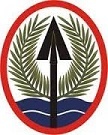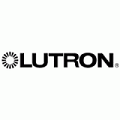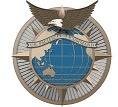Crisis Management
Accredited Consulting Service for Ms. Roberts MS MAJ Accredited Executive Consultant (AEC)
Executive Summary Video

The Appleton Greene Accredited Consultant Service (ACS) for Crisis Management is provided by Ms. Roberts and provides clients with four cost-effective and time-effective professional consultant solutions, enabling clients to engage professional support over a sustainable period of time, while being able to manage consultancy costs within a clearly defined monthly budget. All service contracts are for a fixed period of 12 months and are renewable annually by mutual agreement. Services can be upgraded at any time, subject to individual client requirements and consulting service availability. If you would like to place an order for the Appleton Greene Crisis Management service, please click on either the Bronze, Silver, Gold, or Platinum service boxes below in order to access the respective application forms. A detailed information guide for this service is provided below and you can access this guide by scrolling down and clicking on the tabs beneath the service order application forms.
Client Telephone Conference (CTC)
If you have any questions or if you would like to arrange a Client Telephone Conference (CTC) to discuss this particular Unique Consulting Service Proposition (UCSP) in more detail, please CLICK HERE.
Bronze Client Service
Monthly cost: USD $1,000.00
Time limit: 5 hours per month
Contract period: 12 months
SERVICE FEATURES
Bronze service includes:
01. Email support
02. Telephone support
03. Questions & answers
04. Professional advice
05. Communication management
Silver Client Service
Monthly cost: USD $2,000.00
Time limit: 10 hours per month
Contract period: 12 months
SERVICE FEATURES
Bronze service plus
01. Research analysis
02. Management analysis
03. Performance analysis
04. Business process analysis
05. Training analysis
Consultant profile
Ms Roberts is an approved Executive Consultant at Appleton Greene and she has experience in management, marketing and globalization. She has achieved a Master of Science Degree in Strategic Planning and a Master of Arts in Journalism. She has industry experience within the following sectors: Government; Healthcare; Non-Profit & Charities; Media & Marketing and Manufacturing. She has had commercial experience within the following countries: United States of America, or more specifically within the following cities: Jacksonville FL; Washington DC; Atlanta GA; Charlotte NC and San Antonio TX. Her personal achievements include: created strategic communications plans; managed crisis situations and communications; facilitated leadership development; facilitated team building and created and managed marketing plans. Her service skills incorporate: strategic communications; brand marketing; crisis management; leadership development and risk assessment.
To request further information about Ms. Roberts through Appleton Greene, please CLICK HERE.
Executive summary
Crisis Management
Companies work very hard to build a positive brand image. All public facing information about your company contributes to its brand, and a company’s brand is its reputation. Reputation management is an essential part of doing business. Every company is vulnerable to potential crises that could harm people or damage property, seriously impact business operations, damage the company’s reputation, impact the company’s revenue stream, or threaten the company’s very existence. Companies often get so focused on business performance and day-to-day operations that they forget to plan for possible contingencies and second and third-order effects. This can lead to disaster. Every company must identify and understand the unique risks associated with its business and plan mitigation strategies into daily business processes. By doing this, a company can often prevent a crisis from happening or prepare to effectively deal with a crisis and prevent damage to its reputation. With more than 25 years of experience in dealing with national and international crises, Ms. Roberts has developed a process through which companies can identify and plan for potential crises in order to protect the organization’s image and reputation. By utilizing this Crisis Management process, companies can identify potential crisis points and develop a plan for their leaders and employees to properly mitigate or manage those risks in ways that protect the company.
Service Methodology
In all consulting engagements our efforts are tailored to the client who is hiring us. it has to be, as there is no cookie cutter approach to crisis management. Everything is based on the client’s industry, business operations, business processes, operating procedures, leadership and management configuration, and communication processes. In everything we do, the client’s strategic objectives act as our beacon in moving forward. Early steps involve an assessment of business operations, standard operating procedures, policies, and company communications. If the company has dealt with an incident or crisis in the past, we will complete an assessment on the handling of that situation to gain an understanding of prior processes and impact. We will interview leaders and managers across the organization to understand and identify the specific areas of risk the client faces. Each area of risk will be assessed and graded on a sliding scale based on how likely it is to happen and the threat it poses to the organization. We then work with appropriate personnel to develop potential mitigation strategies. We work with clients to build a Crisis Action Team that acts as a nucleus for any possible incident or crisis scenario, as well as identify additional personnel for each area of risk identified in our assessments. Depending on the level of service requested, that will determine how much of the work we do versus how much we are guiding the client through the process and then reviewing the work they do. Higher levels of service lead to the creation of a full blown Crisis Action Plan with press release templates for each identified risk area and an outline of communication procedures. Our approach to consultation relies on engaging the organization in a thorough risk analysis, identifying mitigation measures for the risks we can, and developing a modular plan that can be adapted to any situation the client might face.
Service Options
Companies can elect whether they just require Appleton Greene for advice and support with the Bronze Client Service, for research and performance analysis with the Silver Client Service, for facilitating departmental workshops with the Gold Client Service, or for complete process planning, development, implementation, management and review, with the Platinum Client Service. Ultimately, there is a service to suit every situation and every budget and clients can elect to either upgrade or downgrade from one service to another as and when required, providing complete flexibility in order to ensure that the right level of support is available over a sustainable period of time, enabling the organization to compensate for any prescriptive or emergent changes relating to: Customer Service; E-business; Finance; Globalization; Human Resources; Information Technology; Legal; Management; Marketing; or Production.
Service Mission
Ms. Roberts is a highly experienced senior executive who has successfully conducted crisis management operations and crisis communications for the United States Army, US Government and various non-profit organizations. Her experience in working with diverse groups of people on national and international crises provides her with a unique perspective in understanding how to do risk assessment, risk mitigation, and risk planning. Her skills as a leader and communicator are well known in the US military and US Government after working on high profile events such as The Presidential Inauguration, White House Diplomatic Visits, international investigations, and high-profile trials. Her skills can best be utilized through small group or individual engagements, seminar discussions, leader/manager workshops and cross-business collaboration techniques. By helping leaders and managers identify potential risk and plan and mitigate appropriately throughout the organization, Ms. Roberts will help clients proactively plan for the protection of their brand and reputation.
Service objectives
The following list represents the Key Service Objectives (KSO) for the Appleton Greene Crisis Management service.
- Strategic Planning
Anyone can start a business, but not everyone can stay in business. It takes a clear vision and road map to know where the company wants to go. Strategic planning involves more than just developing objectives. A company has to evaluate the strategic landscape to develop realistic goals and then map out the objectives, strategies and tactics to reach those goals. Strategic planning is a continuous, evolving process that is essential to a business’ long-term growth and viability. As the business landscape changes over time, the strategic plan must also change. Organizations must ensure that all actions, words and images are aligned toward achieving the stated goals. - Reputation Management
All public facing information about a company contributes to its brand, and the brand is essentially a company’s reputation. Do you know what is on the Internet about your brand? Do you know what people are saying about your brand? Are you prepared in the event of a crisis? Reputation management is an essential part of doing business that requires a company to be proactive. From small things like replying to a customer complaint to large crises like an environmental spill, and everything in between, there are plenty of operational points at which a company’s reputation can be impacted either positively or negatively. Internal communication and leadership create an environment that ensures all employees understand what the brand is, what it means, and how it represents itself externally. A solid corporate culture empowers employees and ensures they are invested in nurturing and protecting the brand at every level within the company. - Business Resilience
An organization is resilient when it can quickly adapt to situations while maintaining operations and safeguarding employees, physical assets and overall brand reputation. Resiliency is more than just recovering from a crisis because it takes measures to mitigate potential issues and develop strategies to ensure continuing operations, information dissemination, protection of assets, and adjustment of procedures as necessary in the face of adversity. Resiliency takes a commitment to evaluating risk and proactively addressing it. It also takes a commitment to thoroughly investigating failures and adjusting policies and procedures as necessary to prevent future issues. Most importantly, it requires a commitment to leadership and transparency in times of adversity when the first instinct is to hunker down and hide. All organizations experience adversity at some point, so it is critical for be prepared for both the good times and the difficult times. Resiliency is tightly aligned with business strategy and requires a holistic approach to risk management by thinking about the potential worst case scenarios and preparing for them in advance. - Strategic Communication
Many businesses address communications individually – internal, external, website, marketing, social media, advertising and public relations. In today’s communications environment, internal communications can quickly become external, and vice versa at a rapid speed. Trying to build silos between these areas will create disconnected messaging that is confusing both internally and externally. Integrated communications planning ensures all company actions, words and images align for a consistent voice that resonates with all of your audiences and builds your brand. This will avoid what we call the say-do gap, an inconsistency between what an organization says and what it does. - Process Improvement
Clearly examining potential worst case scenarios and second and third-order effects of actions equips an organization with valuable foresight rather than hindsight. Proactive organizations drive change and messaging rather than simply react to events happening around them. Seeking out potential areas of adversity allows a company to possible avoid adversity all together or at least minimize the impact it can have. Most importantly, the process of proactively examining operations empowers employees to speak up about dangers they see at their level that may not be visible to anyone else. This allows companies to refine and improve processes before something happens rather than after.
Testimonials
Multi-National Corps-Iraq
”Ms. Roberts created a multi-level plan that allowed the organization to seamlessly and expertly navigate four concurrent Law of Armed Conflict investigations, reporting the facts, investigation status, findings, and actions taken to the public, national and international media, the Department of Defense, U.S. Government and Congressional leaders, Iraqi government officials, and Iraqi family members of the victims.”
United States Army
”Ms. Roberts was instrumental in developing a plan for examining law enforcement operations; substance abuse testing, reporting and treatment; medical operations and treatment; mental health counseling and treatment; and unit policies and procedures to help the Army develop action plans for identifying, treating and monitoring soldiers with Post-Traumatic Stress Disorder (PTSD) and Traumatic Brain Injury (TBI) and creating new suicide prevention policies and procedures.”
Wounded Warrior Project
”Ms. Roberts built a team from across the organization and guided them in identifying operational risks at all levels, developing mitigation strategies, and writing a Crisis Action Plan to deal with potential adverse scenarios. Her work was instrumental in helping the organization weather a recent scandal related to its fundraising and spending practices.”
Lutron Electronics
”Ms. Roberts was instrumental in helping us develop a marketing program for our first time marketing directly to consumers to launch a new product. She helped define the audience personas, develop key brand messaging, create a social media content calendar, and develop consumer surveys. Additionally, she created a drip communications campaign for newly registered users of the product that included a welcome letter, survey, monthly newsletter, and special announcements. Her efforts have resulted in a 130% increase in sales and quality engagement with our customers.”
U.S. Pacific Command
” Ms. Roberts was the driving force that created our Strategic Communication Office from scratch, developing the processes and procedures and educating the command. Her efforts ensured key communications to allies in the Pacific had all words and images aligned with the desired messaging. She played an integral role in securing Chinese acceptance of aid for the first time in this command’s history. Her work enabled the command to project a powerful, yet helpful presence within the Pacific Rim Theater to assist and train our allies in keeping the area secure from regional threats.”
More detailed achievements, references and testimonials are confidentially available to clients upon request.
Industries
This service is primarily available to the following industry sectors:
Manufacturing
Manufacturing touches every sector of the economy. Companies are seeking to keep up with an ever-changing environment of economic pressure and government regulation while trying to grow despite challenges in the world economy. Companies are looking for any advantage possible to be successful, and nimble strategic planning processes can keep manufacturing companies ahead of the pack. Every facet of the manufacturing process is fraught with potential pitfalls such as employee accidents, plant disasters, environmental issues, manufacturing defects, and product recalls. Planning against potential scenarios keeps companies prepared in case their worst case scenario ever happens and allows for a quicker, more thoughtful response that minimizes damage.
Healthcare
The healthcare industry is a complicated, ever-changing environment, as health professionals try to balance efficiency and economy with patient care. Reducing cost and increasing efficiency are an industry and government priority and challenge. New technologies, new drugs, and new processes are constantly being developed which can make the balancing act between efficiency and care difficult. And despite all of the technological development, there is a human component to health care that will never be erased, and humans are not and will not ever be error free. The entire healthcare industry has a multitude of potential crisis points relating to data collection and protection, natural and manmade disaster impacts on facilities, mergers and acquisitions, drug dosing, patient decisions, and employee behavior. Strategic planning against potential crises provides healthcare companies with a view toward flexibility and a critical advantage in dealing with adversity.
Government
Modern government agencies conduct the business of foreign diplomacy, military defense, maintaining domestic order; administering justice, protecting civil liberties; providing a stable monetary system; the providing public goods and services; promoting economic growth and development; operating social insurance and welfare programs, and protecting the environment. Ever changing threats, technology, rules and regulations provide for a difficult landscape to navigate in this more dangerous world in which we live. Within every sector of the government, there are a multitude of potential points of crisis that can result in the questioning of intent, oversight and management. Strategic planning and transparency are essential elements of all government business.
Non-Profit & Charities
Non-profits and charities were once considered untouchable, unquestionable entities. That is no longer the case. Examples of leader excess and wasteful spending brought a spotlight on non-profits and charities that has led to regulation attempts at the state and federal level and the birth of agencies dedicated to grading charities on administrative expenses, spending and results. The very fact that non-profits are spending other people’s donations opens them up to increased scrutiny on matters of donor data protection, employee salaries, budgeting, marketing, spending and performance. Planning against potential crisis points allows a non-profit the advantage of being completely transparent in its operations to avoid accusations of unscrupulous behavior.
Media & Marketing
The 24-hour news cycle and development of new information technologies has created and information environment that is chaotic, crowded, cluttered with inaccuracies, and often overwhelming. Bad actors in this sector who developed invasive communication methods have spurred government regulation for telemarketing, email, and spam. One only need watch the news to understand the high threat and danger from hackers that make consumer data protection so important. Questionable journalism practices and the rise of fake news lead many to no longer trust the media and what it reports. The growth of technology and the Internet gives every individual the ability to be a journalist, reporting unfiltered from their phone about events happening where they are. Strategic assessment and planning becomes critically important within the media and marketing sector because they are often dealing with other companies’ brands in addition to their own, so the risk of damage is twofold.
Locations
This service is primarily available within the following locations:

Jacksonville FL
Thanks in large part to its large tourism industry, Florida is a great place to grow a business thanks to a favorable business tax structure, government policies and competitive costs. Jacksonville, in particular, has been ranked among the best and most-friendly small business environments in the United States. It is home to three Fortune 500 companies and more than 80 corporate, regional, and divisional headquarters. An increase in the region’s financial services, logistics and health care industries, all with heavy information technology needs, has attracted more employers and IT professionals to the area. The blend of technology and creative drive has led to the development of unique collectives, co-work spaces, innovative conferences such as One Spark, and a thriving food truck industry.
Washington DC
Washington DC is the epicenter of US legal and policy formulation. Within the nation’s capital are multiple stakeholders (State, Defense, military branches, industry leaders, and more than 1100 national associations) as well as the headquarters of corporations and companies that are all competing for their own perspectives to be heard and acted upon. Washington DC is home to top financial institutions, both regional and national, as well as nearly 51 fortune 500 businesses. While the major industries are government and tourism, there are several growing industries unrelated to the government, namely scientific research, education and finance. Understanding the intricacies of the Washington DC environment is important as companies conduct strategic planning and crisis management because small incidents here can create much larger ripples that have the potential to affect not only the company, but the industry as well.
Atlanta GA
Home to the world’s most-traveled and most efficient airport, as well as 15 Fortune 500 companies, Atlanta is a hub for global and domestic operations. With a GDP of $295 billion and forecasted to grow to $474 billion by 2040, Atlanta is just a slice of the economic engine in the Southeast, which has the 5th largest GDP in the world and is the leading market for population and economic growth in the U.S. Because of its work in diversifying industries and developing an aggressive incentive program, CEOs consistently rank Georgia high on the list of best states for business, while Atlanta receives high marks for its small business friendliness and tax friendliness.
Charlotte NC
Charlotte is focused on innovation to attract leading-edge companies in the energy, banking and finance, aerospace and defense, life sciences, and film production industries. It is home to eight Fortune 500 companies and 950 international companies and is the hub of the NASCAR and motorsports business. A growing financial services industry is quickly becoming an economic driver for the region. Site selection consultants used by businesses to select new locations ranked Charlotte number one over Atlanta, Nashville, Tampa, Richmond and five other cities for its availability of an appropriately skilled workforce, location/accessibility of the region to the market, and quality/availability of incentives.
San Antonio TX
The historic city of San Antonio is considered one of the most attractive cities for business due to its educated workforce and business-friendly climate. Home to industries such as Aerospace, Information Technology and Cybersecurity, New Energy, and Healthcare and Bioscience, San Antonio actively works to maintain its appeal with infrastructure investments, low property taxes, incentives, and recognition as one of the most fiscally strong cities of its size. Independent professionals recently ranked San Antonio as the Best Climate for Skilled Professionals thanks to its friendly licensing process and helpful training programs.
Clients
This service’s current clients or employers include:
U.S. Government
As a senior leader in the U.S. Army, Ms. Roberts was part of one of the largest and most important government organizations in the United States. Its function is to defend the American people from aggressors with a force of qualified, skilled, and dedicated Soldiers. She has more than 25 years of experience leading organizations ranging from a few highly skilled individuals to several hundred people with a broad range of abilities, skills, and backgrounds and direct experience managing strategic programs and multi-million dollar budgets at the highest levels of the government. She has a distinguished record of accomplishing results through innovation with emerging technologies under intense scrutiny, in uncertain environments, and in both sensitive and dynamic situations. Her career culminated in the Military District of Washington, where she worked with the Secret Service, FBI and within the highest levels of the military and executive and legislative branches of government to conduct consequence management planning and coordinate media operations for National Special Security Events such as the Presidential Inauguration, White House Arrival Ceremonies, State Funerals and wreath laying ceremonies at Arlington National Cemetery.

Military District of Washington
MDW is the home of the Army’s official ceremonial units and was the key defense support in the rescue and recovery operations at the Pentagon when terrorists struck on September 11,2001. The MDW commander is also the senior mission commander for four Army and one joint Army/Marine multi-installation garrisons. When U.S. Northern Command formed to provide homeland defense and defense support to civil authorities, MDW was charged with standing up Joint Force Headquarters National Capital Region as its sub-command. The MDW commanding general directs a staff to work in collaboration with other authorities, civilian and military, enhancing communications and planning as well as the ability for coherent response to crisis, as when JFHQ-NCR becomes a joint task force, as it regularly does for national special security events. The MDW commanding general has some unique responsibilities in connection with his command’s ceremonial mission. At various official functions as directed he represents the president of the United States, the secretary of defense, the chairman of the Joint Chiefs of Staff, the secretary of the Army or the chief of staff of the Army. The command sees the nation’s wounded on their return from battle and receives the fallen on their return. Funeral honors at Arlington National Cemetery are the command’s honored responsibility.
Military District of Washington – Click Here
Lutron Electronics
Lutron is a technology-centered and people-driven company with a long history of significant growth and smart innovations. Lutron holds over 2,700 worldwide patents. In addition to the solid-state dimmer, Lutron innovations also include the first electronic dimming ballast for fluorescent lights and the first self-contained pre-set lighting control system. Lutron was also the first to successfully mass-market the dimmer, the first to successfully market systems of linked dimmers, and is still the only company to create systems of dimmers and motorized window shades that control both electric light and daylight. In almost 50 years of innovation, Lutron has invented hundreds of lighting control devices and systems, and expanded their product offering from 2 products to 15,000. The company has advanced the technology of lighting control while maintaining top market position by focusing on exceptional quality and design. Lutron continues to lead the market in high-quality lighting controls for fluorescent, halogen incandescent, magnetic low-voltage, electronic low-voltage and LED light sources. Lutron has also led innovations in window shade technology for the control of daylight, as well as wired and wireless systems, to integrate the control of both daylight and electric light.
Lutron Electronics – Click Here
US Pacific Command
USPACOM is one of six geographic Unified Combatant Commands of the United States Armed Forces. Commander, U.S. Pacific Command reports to the President of the United States through the Secretary of Defense and is supported by four component commands: U.S. Pacific Fleet, U.S. Pacific Air Forces, U.S. Army Pacific and U.S. Marine Forces, Pacific. These commands are headquartered in Hawaii and have forces stationed and deployed throughout the region. The United States Pacific Command (USPACOM) Area of Responsibility (AOR) encompasses about half the earth’s surface, stretching from the waters off the west coast of the U.S. to the western border of India, and from Antarctica to the North Pole. There are few regions as culturally, socially, economically, and geo-politically diverse as the Asia-Pacific. The 36 nations that comprising the Asia-Pacific region are home to more than 50% of the world’s population, 3,000 different languages, several of the world’s largest militaries, and five nations allied with the U.S. through mutual defense treaties. Two of the three largest economies are located in the Asia-Pacific along with 10 of the 14th smallest. The AOR includes the most populous nation in the world, the largest democracy, and the largest Muslim-majority nation. More than one third of Asia-Pacific nations are smaller, island nations that include the smallest republic in the world and the smallest nation in Asia.
US Pacific Command – Click Here
Wounded Warrior Project
Wounded Warrior Project® (WWP) serves veterans and service members who incurred a physical or mental injury, illness, or wound, co-incident to their military service on or after September 11, 2001 and their families. Wounded Warrior Project® (WWP) takes a holistic approach when serving warriors and their families to nurture the mind and body, and encourage economic empowerment and engagement. Through a high-touch and interactive approach, WWP hopes to foster the most successful, well-adjusted generation of wounded service members in our nation’s history.
Benefits
Management
- Strategic planning
- Risk assessment
- Risk mitigation
- Crisis planning
- Refined processes
- Gain efficiency
- Refined procedures
- Competitive advantage
- Innovative solutions
- Organizational resiliency
Human Resources
- Employee empowerment
- Employee trust
- Workforce loyalty
- Workforce participation
- Increased productivity
- Employee retention
- Increased decisiveness
- Increased confidence
- Personal satisfaction
- Team building
Marketing
- Strategic communications
- Improved reputation
- Crisis communications
- Message alignment
- Cohesive messaging
- One voice
- Organizational transparency
- Employee participation
- Team building
- Community relations
Bronze Service
Monthly cost: USD $1,000.00
Time limit: 5 hours per month
Contract period: 12 months
Bronze service includes:
01. Email support
02. Telephone support
03. Questions & answers
04. Professional advice
05. Communication management
SERVICE DESCRIPTION
The Bronze Client Service (BCS) for Crisis Management provides clients with an entry level option and enables client contacts to become personally acquainted with Ms. Roberts over a sustainable period of time. We suggest that clients allocate up to a maximum of 5 Key Employees for this service. Your Key Employees can then contact the consultant via email, whenever they feel that they need specific advice or support in relation to the consultant’s specialist subject. The consultant will also be proactive about opening and maintaining communications with your Key Employees. Your Key Employees can list and number any questions that they would like to ask and they will then receive specific answers to each and every query that they may have. Your Key Employees can then retain these communications on file for future reference. General support inquiries will usually receive replies within 48 hours, but please allow a period of up to 10 business days during busy periods. The Bronze Client Service (BCS) enables your Key Employees to get to know their designated Appleton Greene consultant and to benefit from the consultant’s specialist skills, knowledge and experience.
Silver Service
Monthly cost: USD $2,000.00
Time limit: 10 hours per month
Contract period: 12 months
Bronze service plus
01. Research analysis
02. Management analysis
03. Performance analysis
04. Business process analysis
05. Training analysis
SERVICE DESCRIPTION
The Silver Client Service (SCS) for Crisis Management provides more time for research and development. If you require Ms. Roberts to undertake research on your behalf, or on behalf of your Key Employees, then this would understandably require more time and the Silver Client Service (SCS) accommodates this. For example, you may want your consultant to undertake some research into your management, performance, business, or training processes, with a view towards providing an independent analysis and recommendations for improvement. If any research and development, or business analysis is required, then the Silver Client Service (SCS) is for you.
Gold Service
Monthly cost: USD $3,000.00
Time limit: 15 hours per month
Contract period: 12 months
Bronze/Silver service plus
01. Management interviews
02. Evaluation and assessment
03. Performance improvement
04. Business process improvement
05. Management training
SERVICE DESCRIPTION
The Gold Client Service (GCS) for Crisis Management is intended for more detailed evaluation and assessment, that may require your Key Employees to have monthly meetings or interviews with Ms. Roberts. These meetings and interviews can be conducted over the telephone, Skype, or by video conference if required. The consultant can also attend your business premises, an Appleton Greene office, or another mutually beneficial location, but please note that clients are responsible for the costs of any disbursements separately, including travel and accommodation. This service enables you to integrate the specific skills, knowledge and experience of your designated consultant into your Key Employee management team. The Gold Client Service (GCS) can also incorporate training workshops, business presentations and external meetings with customers, suppliers, associations, or any other business-related stakeholders.
Platinum Service
Monthly cost: USD $4,000.00
Time limit: 20 hours per month
Contract period: 12 months
Bronze/Silver/Gold service plus
01. Project planning
02. Project development
03. Project implementation
04. Project management
05. Project review
SERVICE DESCRIPTION
The Platinum Client Service (PCS) for Crisis Management is our flagship service and will be required if you need Ms. Roberts to facilitate the planning, development, implementation, management, or review of a particular project relating to his specialist subject, which would obviously require more time and dedication. This service enables you to reserve up to 12.5% of the consultant’s working month and provides a more hands-on service as and when required. If you need more time than this, then this can always be arranged, subject of course to the consultant’s ongoing availability. The benefit of having an external consultant involved in projects is they provide an independent perspective and are not influenced by internal politics, day-to-day responsibilities, or personal career interest. They provide objectivity, specific knowledge, skills and experience and will be entirely focused upon the tasks at hand. The Platinum Client Service (PCS) will provide your organization with a valuable resource as and when you need it.

































